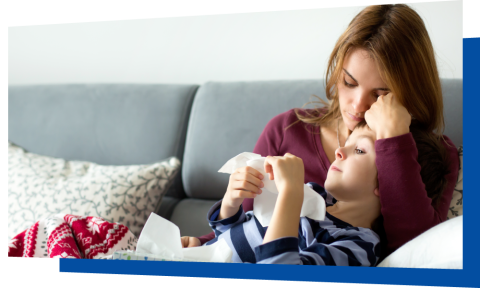COVID-19: What To Do If You Are Sick
Learn what to expect if you are sick, including the symptoms, and steps to take if you have COVID-19.
What are the symptoms?
People with COVID-19 can experience a wide range of symptoms. Most symptoms will be mild, but some can be severe and lead to hospitalization or death.
You may have COVID-19 if you have any of these symptoms:
- Cough (new onset or worsening of chronic cough)
- Shortness of breath
- Fever or chills
- Sore throat
- Congestion or runny nose
- Muscle or body aches
- Headache
- New loss of taste or smell
What to do if you have COVID-19
If you test positive or have symptoms of COVID-19, stay home and isolate. Isolating away from others helps prevent spreading the virus to others. During isolation:
- Stay home
- Wear a well-fitting mask if you have to be around other people
- Watch for new or worsening symptoms. If you have any emergency warning signs, seek emergency care immediately.
- Notify people you may have exposed
What to do if you have long lasting COVID-19 symptoms
If you have symptoms that last more than four weeks, you may be experiencing a post-COVID condition. Post COVID conditions are physical and mental health problems that can be ongoing after being infected with the virus that causes COVID-19.
Multisystem inflammatory syndrome (MIS-C) is a rare, but serious post-COVID condition that primarily affects school aged children. It can cause parts of the body to become inflamed, including the heart, lungs, kidneys, brain, skin, eyes, or stomach, after being sick with COVID-19.
More information about MIS-C can be found at the Wisconsin Department of Health Services webpage: Multisystem Inflammatory Syndrome in Children (MIS-C).

